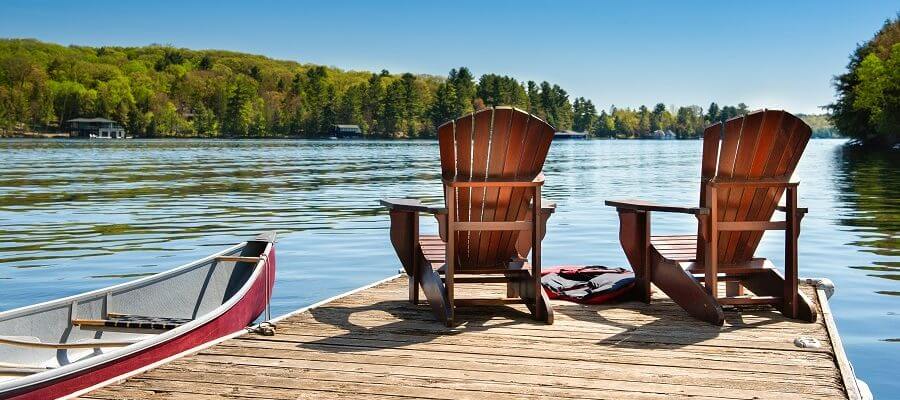By Yvonne Ziomecki
Cottage sales are surging in parts of Canada, especially Ontario, in the midst of the COVID-19 pandemic.
Many Canadians are apparently deciding that it makes sense to pursue their dream of a lakeside retirement home now, since international travel is likely not in the cards for some time and dreams of globetrotting in our golden years may no longer be realistic.
What’s more, with many people now working from home — perhaps permanently — they’re realizing all they need is a strong WiFi connection to make their cottage dream a reality.
Home Equity Bank can help them do so. Homeowners 55 and up can use the CHIP Reverse Mortgage to either put a down payment on a cottage, or if they already own one, pay for upgrades to make it more age-friendly as they prepare to move there permanently.
Because let’s face it, some cottages aren’t exactly age-friendly. They can be perched on steep inclines or on slippery or treacherous rocks. Staircases to and from the lake may be precarious.
That can make cottage living difficult enough for a younger person, but those 55 and up need to ensure any cottage they’re buying is accessible if they intend to live out the rest of their lives there.
How?
It starts as soon as the hunt begins. Work with a reputable agent who knows the area well, and make sure he or she knows that you want a cottage that has no accessibility issues. If you’re intending to age in place at the cottage, this will be essential.
Look for cottages that are close to communities so that help or repair people are never too far away. Keep your eyes peeled for cottages with a minimum of staircases, as well as ease of access to the water. A bungalow or rambler-style cottage on a flat or gently sloped lot is best.
Make sure the bathrooms are relatively spacious to be wheelchair- or walker-friendly in the years to come, and bathtubs either have grab bars or could be easily equipped with them. Ensure the kitchen as well could be simply retrofitted to be accessible, and that steps to and from the cottage can be easily replaced by ramps.
Look for cottages with wider doorways, or doorways that could be widened without much trouble. Look for non-slip flooring, or consider putting down new flooring or low-pile carpeting. Look for bright cottages with lots of natural light and interior and exterior lighting.
And if you have no luck, consider buying a lakefront lot and building your own cottage so that it’s exactly how you want it in the years ahead. In some cases, this might even be more economical … especially as bidding wars break out in cottage country.
And back to the WiFi. This is no minor consideration if you’re going to work from the cottage. Many rural communities in Canada either don’t have broadband access or have limited access to affordable, high-speed internet, and satellite internet can be spotty and unreliable.
If you’re serious about a cottage, ask the neighbours about their WiFi experiences. You don’t want to spend your time at the cottage at the nearest Tim Hortons all day. And it’s not just work: an internet connection is a critical lifeline to the outside world when living in rural areas. It may be essential for staying in touch with your kids and grandkids.
So are you ready to buy a cottage? If so, be mindful of your needs — not just now, but in the years ahead.







